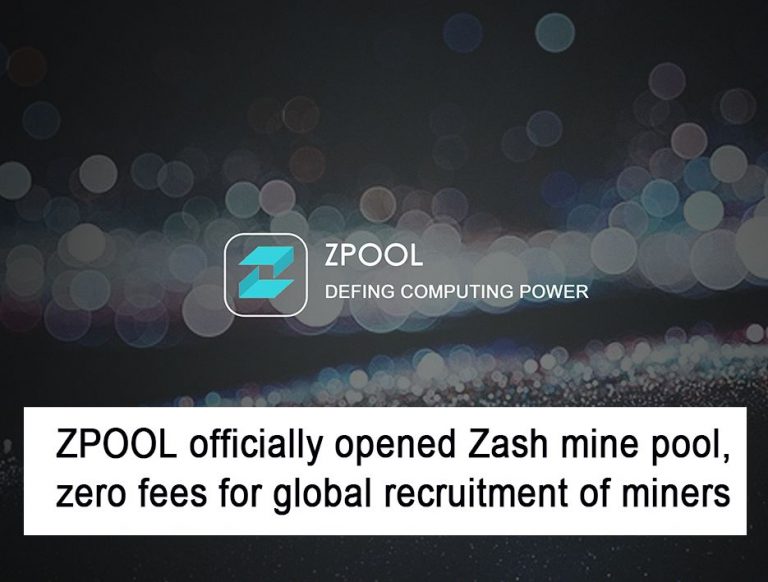
2022-5-27 00:08 |
As politicians and environmentalists have argued Bitcoin should move away from proof of work, they miss what makes the network so innovative.
Bitcoin’s consensus mechanism, proof of work (PoW), tends to bring about divisive opinions in society. While some argue it is a core aspect of Bitcoin’s success, others claim the network would retain most of its properties while reaping new benefits if it switched to alternative consensus mechanisms such as proof of stake (PoS).
This discussion was brought to the fore this week as two diametrically-opposed events happened nearly simultaneously: The World Economic Forum’s (WEF’s) annual meeting in Davos, Switzerland, and the Oslo Freedom Forum (OFF) in Oslo, Norway.
Both Davos and Oslo hosted discussions about cryptocurrency, Bitcoin and the designs of them both. Led by growing environmental concerns worldwide, the energy usage of this burgeoning technology was inevitably part of the agendas.
The Arguments For PoS BitcoinBased on the energy consumption topic, WEF tweeted earlier this year that, if Bitcoin were to move to PoS, it could “almost eliminate its environmental impact.”
The tweet featured a video with arguments that stem from the “Change The Code, Not The Climate” campaign — an initiative spearheaded by Greenpeace and billionaire Ripple co-founder Chris Larsen to lobby 50 key miners, companies and developers in the Bitcoin industry to move the protocol away from PoW in favor of PoS.
The claim that Bitcoin could use a different consensus protocol that is supposedly both better for the environment and enables a similar degree of security is not new. In January, a cohort of U.S. Representatives put the same suggestion forward in a Congressional hearing on bitcoin mining.
However, these assumptions are disputed.
The Bitcoin Policy Institute (BPI), an interdisciplinary cohort of economists, coders, lawyers, climate scientists, philosophers and policy analysts providing research, fact-checking and commentary on Bitcoin, has published two fact-checking notes this year on myths and misunderstandings about Bitcoin’s energy consumption.
In addition to the energy debate — whether Bitcoin really is that detrimental to the environment, which the BPI tackled in its notes — there is also the security debate.
Bloomberg reported on the “Change The Code, Not The Climate” campaign in March, mentioning comments from Chris Bendiksen, a Bitcoin researcher at CoinShares and “one of the world’s leading experts on Bitcoin mining,” per the report.
“I’d put the chance of Bitcoin ever moving to PoS at exactly 0%,” Bendiksen said. “There is no appetite among Bitcoiners to destroy the security of the protocol by making such a move.”
A panel at OFF 2022 raised similar concerns. The conversation featured Nic Carter, general partner at early stage cryptocurrency venture capital firm Castle Island Ventures; Lyn Alden, founder of equity research and investment strategy firm Alden Investment Strategy; and Darin Feinstein, founder of bitcoin mining and computer infrastructure company Core Scientific (Nasdaq: CORZ).
The three panelists covered topics including energy consumption, the differences between PoW and PoS and why PoW is necessary for Bitcoin. But before diving into the arguments, let’s review what a consensus mechanism actually is.
What Is A Consensus Mechanism?A cryptocurrency’s consensus mechanism determines how the participants in the network decide the state of the blockchain — ultimately, what transactions are valid and can be added to blocks and what blocks are valid and can be added to the chain.
Since cryptocurrencies are supposed to be decentralized, they are ideally composed of thousands of peers connected to each other, forming a network. These peers don’t necessarily trust each other, meaning that they don’t have to believe in the truthfulness of the messages each of them transmits across the network. And since there is no central authority to call the shots, there needs to be a standard set of directives for these “mutually distrusting” peers to agree.
There are plenty of different consensus mechanisms being used by cryptocurrency projects today, but the two most popular ones are PoW and PoS.
PoW Or PoS?PoW is the consensus mechanism devised by Satoshi Nakamoto in the Bitcoin white paper. At its core, the design of Bitcoin’s PoW system is based on Hashcash, which was invented in 1997 by Dr. Adam Back, an early cypherpunk and current CEO of Bitcoin infrastructure company Blockstream.
Those who seek to create new coins in a PoW-based network, referred to as miners, collectively do zillions of computer calculations per second to find a valid number for the next block on the blockchain. This number, called the block hash, is the output of a hashing function that they calculate by feeding it with data such as transactions awaiting confirmation on the network, a random number called a “nonce,” a timestamp and other kinds of information. Miners vary these variables to find a hash below a target set by the network — a target of which is known as difficulty; the lower the target, the more difficult it is to find a valid number.
When a miner finds a valid hash, they propose their block to the network by propagating it to nodes, which will verify the validity of that work — which is easily done. Therefore, miners in Bitcoin need to abide by the rules of the network, which are checked by the nodes, in order to receive their block reward. In other words, miners do not control Bitcoin as is often suggested.
“PoW allows everyone to decide on the correct state of the ledger with no human oversight or governance,” said Carter during the OFF panel.
Since the work’s proof and the energy fueling it are trivially checked in a non-subjective, programmatic way, PoW networks are able to remove the human component in the decision-making process.
By relying on energy expenditure, PoW also is able to tie a digital network and its digital money to the physical world. Since the consensus mechanism requires real-world computers to perform calculations that consume energy, the network is able to require a real-world cost to those participating in the creation of new coins. In that sense, Bitcoin’s value is, at the bare minimum, always directly tied to costs in the physical world in which we live.
Feinstein argued that Bitcoin’s PoW mining system is an evolution of the hundreds-of-years-old ledger system that relies on a trusted, centralized authority to maintain records and balances — which is leveraged by banks and nearly all other accounting-related businesses to this day.
“Bitcoin created a triple-entry [ledger] from the old double-entry [ledger] and the ledger self-audits and writes on-chain,” he said. “It’s an immutable ledger entry that can never be altered.”
“That’s the best accounting technology that has ever been created by humans,” he added. “So anything that lives on top of this Bitcoin network, that is an accounting innovation, is gonna be better than the legacy system that it replaces.”
PoS takes another approach to finding consensus in a distributed ledger. Instead of requiring energy expenditure, the cost of participating in mining in such a network is tied to the amount of that network’s digital money the participant holds.
A node that wishes to take part in the consensus mechanism of a PoS-based blockchain — to become a validator — needs to “stake” a certain amount of coins of that blockchain that they own. Staking means locking up one’s coins as collateral in the blockchain in a way that allows the network to punish validators by destroying part of or all of their coins if they behave dishonestly or lazily.
Implementations vary, but taking Ethereum’s proposed PoS design as an example, the PoS network randomly selects a validator to propose a block and also a committee of validators to check and vote on the validity of the block proposed.
Proponents of PoS argue that staking one’s coins is enough cost to encourage honest participation, but some contrarian arguments exist.
First, PoS networks determine a minimum amount of coins that need to be staked for a user to participate in its consensus mechanism. On Ethereum, that amount is 32 ETH. Smaller players, though they can participate in pools, are hence excluded from the process and those with bigger amounts of money are favored. (This is different from bitcoin mining pools because nodes validate, and any participant can be a node.) As a result, in PoS those determining the state of the network are the ones with the largest holdings of that network’s coin.
“Basically, PoS relies on circular logic, where the largest coin holders determine the state of the ledger and the state of the ledger determines who the largest coin holders are,” Alden said at the panel.
Consequently, while there is no single central authority dictating the truth, PoS networks defer these decisions to a select group of large coin holders. This is akin to common systems before the invention of cryptocurrencies where those with a larger stake in the system — larger stakeholders — get more power in decision making.
“PoS is just a fancy way of referring to shareholder governance or a stakeholder-led system where effectively your ownership of the system determines your authority of the system,” Carter said. “That’s how SWIFT works, how PayPal works. That’s how banks work. Those are all PoS systems.”
Those who ask that Bitcoin move to PoS miss the differences between that consensus mechanism and PoW and how each strives to achieve different things.
“PoS is doing completely different things than what Bitcoin is doing,” Alden said. “Bitcoin without energy, without the work, is like airplanes with the flight removed, it’s taking out the key innovation of what makes it so useful.”
Bitcoin, by leveraging energy for proving work and nodes to attest the validity of the work, can bring about apolitical money that enables equal participation and treats all users alike.
“Look, these PoS systems work fine. They just aren’t depoliticized. They don’t allow just anybody to transact,” Carter said, adding that he believes money should enable anyone to transact, regardless of whether they abide by the system’s political beliefs or not. “That’s been stripped away from us as we’ve digitized finance.”
origin »Bitcoin price in Telegram @btc_price_every_hour
PROOF (PF) на Currencies.ru
|
|






















